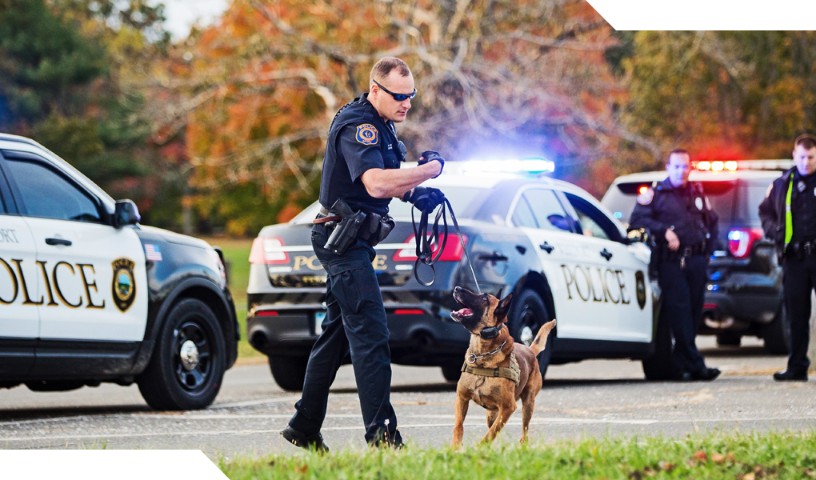Making mindfulness a part of your everyday operation
May 11, 2022

Many in the responder community find mindfulness to be irrelevant to their life experience. They see it as a hindrance. But tactical mindfulness is actually an advantage. It enhances performance in our professional and our personal lives.
Responders have a direct line to what is happening in the community. We don’t get the call because people are having a great time. And we witness the worst of human experience. Yet, we expect to create a positive outcome. Outcomes are often not under our control. Part of mindfulness is recognizing what we are capable of in the moment and basing our self-evaluation on that. It’s not about some unattainable, idealized expectation.
What is mindfulness?
Mindfulness practices – whether that’s yoga, meditation, snowboarding, mountain biking, walking, fishing, or other – allow us to drop the pressures in our lives and focus on what really matters to us. You don’t need yoga pants or incense to achieve this state. All you need is to absorb yourself in whatever you’re doing and reap the rewards in that moment. That could be physical activity, tinkering with something mechanical or appreciating the stillness of nature.
I’ve attained states of mindfulness during dirt biking and target shooting. Any activity that motivates, absorbs, and recharges qualifies as mindfulness.
Yet many times when we are stressed, these are the first things we give up. We are so passionate about our mission that it often subsumes us. The mission takes over our lives, our waking thoughts, our dreams, and our daily schedules.
Training options
If you find it challenging to carve out time like this for yourself on a daily basis, there are organized options to help you train and establish the mindfulness habit. Organized, mindfulness-based training can have significant positive impacts on our overall wellbeing, according to a growing body of evidence.
- In one study conducted in Oregon and validated by other work, Mindfulness-Based Resilience Training (MBRT) significantly reduced salivary cortisol and burnout. And it increased mindfulness, resilience, and mental and physical health among Law Enforcement Officers.1
- A study of 50 ER nurses demonstrated a robust association between mindfulness and multiple measures of psychological well-being that translated into reduced burnout.2
- Mindfulness training increases psychological resilience in high-stress populations, including military personnel.3
What we do as emergency responders, whether in the field or in the hospital, is demanding and essential. We all possess special skill sets that allow us to do this work. But the culture of our jobs has often told us we need to sacrifice, be martyrs, not care for ourselves. If we can’t win every battle, we are weak and don’t belong. This is not true.
Caring for ourselves
We are human and that is the greatest strength we bring to our jobs. We care about others, but we need to take care of ourselves to succeed in our mission, thrive in our lives, and know that we really matter.
When we neglect our needs, our families and friends suffer along with us. These jobs are demanding. It is a select few who can respond to this call. Our mission, along with that of FirstNet®, Built with AT&T is to better support those who support our communities. We see you, salute you, and support you.
At All Clear Foundation, we offer a wealth of free, vetted tools and resources designed specifically for emergency responders. For more information and tools about mindfulness, check out our YOU|ResponderStrong Wellness Tool at https://you.responderstrong.org/. It’s available free 24/7 for emergency responders, including healthcare workers and their families. And it is full of vetted content to support mindfulness and overall well-being. Together we are stronger.
Rhonda Kelly served in emergency response for more than 20 years, working as an EMT, paramedic, firefighter, and registered nurse. In 2016, she founded ResponderStrong, a collaborative initiative to build better mental health support for responders and their families. In 2020, she and ResponderStrong joined the All Clear Foundation where she now serves as Executive Director.
1 Christopher MS, Goerling RJ, Rogers BS, Hunsinger MH, Baron G, Bergman A, & Zava DT (2016). A pilot study of evaluating the effectiveness of a mindfulness-based intervention on cortisol awakening response and health outcomes among law enforcement officers. Journal of Police and Criminal Psychology 31(1):15–28. doi: 10.1007/s11896-015-9161-x
2 Westphal, M., Bingisser, M. B., Feng, T., Wall, M., Blakley, E., Bingisser, R., & Kleim, B. (2015). Protective benefits of mindfulness in emergency room personnel. Journal of affective disorders, 175, 79–85. https://doi.org/10.1016/j.jad.2014.12.038
3 Kaplan, J. B., Bergman, A. L., Christopher, M., Bowen, S., & Hunsinger, M. (2017). ROLE OF RESILIENCE IN MINDFULNESS TRAINING FOR FIRST RESPONDERS. Mindfulness, 8(5), 1373–1380. https://doi.org/10.1007/s12671-017-0713-2
